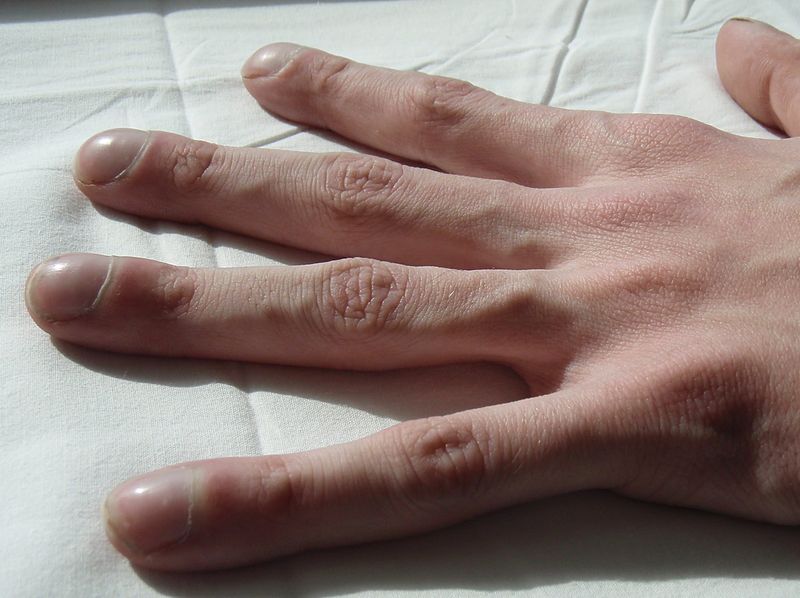Cystic fibrosis is a genetic disorder that affects mostly the lungs, but also the pancreas, liver, kidneys, and intestine. Long-term issues include difficulty breathing and coughing up mucus as a result of frequent lung infections. Other signs and symptoms include sinus infections, poor growth, fatty stool, clubbing of the fingers and toes, and infertility in males, among others. Different people may have different degrees of symptoms.
No cure for cystic fibrosis is known. Lung infections are treated with antibiotics which may be given intravenously, inhaled, or by mouth. Sometimes, the antibiotic azithromycin is used long term. Inhaled hypertonic saline and salbutamol may also be useful. Lung transplantation may be an option if lung function continues to worsen. Pancreatic enzyme replacement and fat-soluble vitamin supplementation are important, especially in the young. Airway clearance techniques such as chest physiotherapy have some short-term benefit, but long-term effects are unclear.The average life expectancy is between 42 and 50 years in the developed world. Lung problems are responsible for death in 80% of people with cystic fibrosis.
CF is inherited in an autosomal recessive manner. It is caused by the presence of mutations in both copies of the gene for the cystic fibrosis transmembrane conductance regulator (CFTR) protein. Those with a single working copy are carriers and otherwise mostly normal. CFTR is involved in production of sweat, digestive fluids, and mucus.
CF is most common among people of Northern European ancestry and affects about one out of every 3,000 newborns.
Photo by Jerry Nick, M.D Creative Commons License
Cystic fibrosis. (2016, October 8). In Wikipedia, The Free Encyclopedia. Retrieved 17:18, October 8, 2016, from https://en.wikipedia.org/w/index.php?title=Cystic_fibrosis&oldid=743231622

